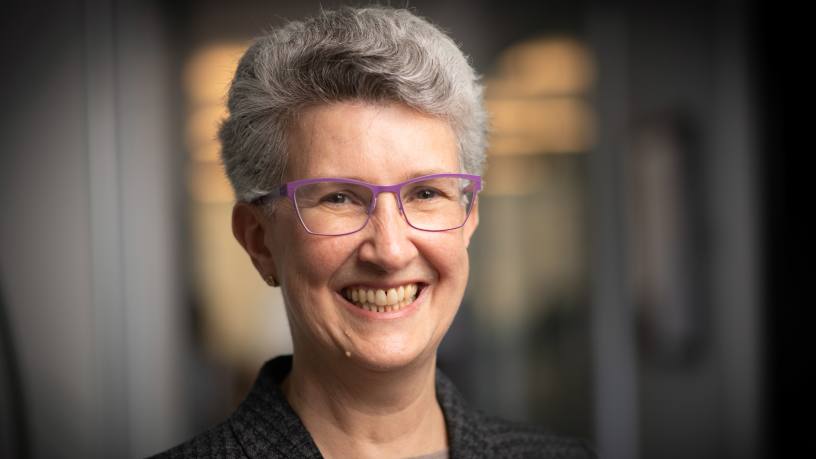Janine Guillot, CEO of the Value Reporting Foundation, had overseen the previous consolidation of the Sustainability Accounting Standards Board (SASB), which she led, with the International Integrated Reporting Council. SASB is set to consolidate into International Sustainability Standards Board (ISSB) in June, after the Climate Disclosure Standards Board will have joined earlier this year.
In addition to the undeniable benefit of condensing the environmental, social and corporate governance (ESG) alphabet soup, these mergers point to a growing maturity about these types of disclosures, not least from the accounting profession itself. “Unless people are deep in the weeds of accounting standard setting, they don’t always realise that [the creation of ISSB] is a really big deal,” says Ms Guillot.
Q: What reporting framework will we end up with?
A: The proposed architecture of ISSB standards include three things: general requirements for disclosures around things like governance, strategy, risk management; thematic requirements, such as climate risk; and industry-specific requirements. The SASB standards are the starting point for those industry-specific requirements. They’ve been through a rigorous due process already, but in order for the ISSB to use them, they need to put them through the ISSB’s own global due process.
We already know of improvements we would want to make to the SASB standards — one is to fully internationalise certain metrics that currently are not fully applicable globally. We are already looking at suggested technical corrections from SASB users. The new board will have to hear from market participants.
Typically, accounting standards setters put things out for consultation from 90 to 120 days, but the two things we know will move to public consultation very rapidly are the general requirements prototype and the climate-related disclosures prototype. The goal is for ISSB to issue those as ‘exposure drafts’ in the first quarter of 2022 and move through due process fairly rapidly.
Q: Will the prospect of regulation change corporate behaviour?
A: Unless people are deep in the weeds of accounting standard setting, they don’t always realise that this is a really big deal; these are sustainability disclosures embedded in the accounting standard-setting infrastructure and with oversight from regulators.
I wouldn’t expect companies to wait for regulators to act. I would expect them to continue to move their disclosures forward using the tools that are available including the Task Force on Climate-related Financial Disclosures and the SASB standards — definitely now that the prototypes have been published as they give companies insight into the early direction of travel for ISSB standards.
Q: Does it surprise you that 70% of a group of 107 publicly listed companies didn’t disclose climate risks in financial statements last year?
A: It actually doesn’t surprise me because for so long climate-related risk has been lumped under this broad concept of sustainability disclosure, which has often been viewed as irrelevant to the financial valuation of a company. But I would be surprised if 70% of companies reviewed weren’t disclosing anything about climate anywhere. You have to be so precise about language and make sure everyone’s speaking the same language, so you know exactly what someone is trying to say.
Q: The same research noted that 80% of auditors didn’t pick up any discrepancies between sustainability disclosures and financial statements. Is that an issue?
A: This is a very interesting finding. I think boards of directors and audit committees are increasingly taking an interest in how sustainability information is delivered to investors. But companies have to get the internal processes in place to make sure that’s possible. We think that sustainability information should be prepared with the same systems of internal controls and board governance and oversight as financial information. We’re less focused on where the information is put because it does vary so much based on legal frameworks around the world.
Q: Are accountants and auditors ready to deal with the potential revolution that ISSB can bring about?
A: I started my career as an accountant; I think accountants bring a lot of skills to this conversation, particularly on internal controls, data governance and how to aggregate huge data sets globally. If you think about what the accounting department of any big multinational has to do to even report revenue, that’s a huge task. What they don’t necessarily always bring is knowledge around sustainability issues, and how those issues can impact the value of the company. They don’t necessarily have an understanding of how investors actually use this data and integrate it into investment decisions.
For the SASB standards, we have a fundamentals of sustainability accounting certification and a lot of accountants engaged with this. What’s fascinating is that with the creation of ISSB, the involvement of the US Securities and Exchange Commission and the work of the European Commission, this area has suddenly got the attention of a much broader group of people, as potential new standards and regulatory changes may impact their jobs.








